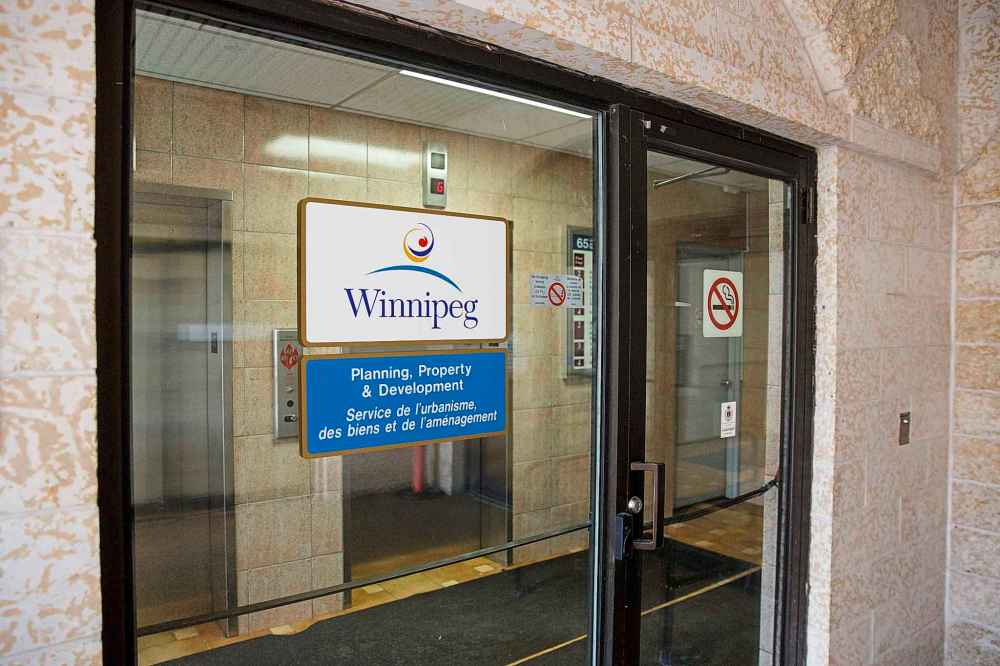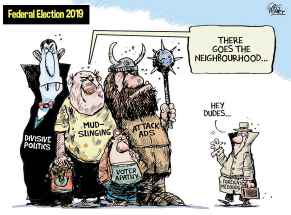Planning department problems require complex solution
Read this article for free:
or
Already have an account? Log in here »
To continue reading, please subscribe:
Monthly Digital Subscription
$0 for the first 4 weeks*
- Enjoy unlimited reading on winnipegfreepress.com
- Read the E-Edition, our digital replica newspaper
- Access News Break, our award-winning app
- Play interactive puzzles
*No charge for 4 weeks then price increases to the regular rate of $19.00 plus GST every four weeks. Offer available to new and qualified returning subscribers only. Cancel any time.
Monthly Digital Subscription
$4.75/week*
- Enjoy unlimited reading on winnipegfreepress.com
- Read the E-Edition, our digital replica newspaper
- Access News Break, our award-winning app
- Play interactive puzzles
*Billed as $19 plus GST every four weeks. Cancel any time.
To continue reading, please subscribe:
Add Free Press access to your Brandon Sun subscription for only an additional
$1 for the first 4 weeks*
*Your next subscription payment will increase by $1.00 and you will be charged $16.99 plus GST for four weeks. After four weeks, your payment will increase to $23.99 plus GST every four weeks.
Read unlimited articles for free today:
or
Already have an account? Log in here »
Hey there, time traveller!
This article was published 10/04/2019 (2434 days ago), so information in it may no longer be current.
The results of a secret surveillance of the work habits of employees of the City of Winnipeg’s planning, property and development department revealed many surprising findings.
Inspectors working only three hours a day. Two-hour lunches and coffee breaks. Personal errands and chores being done during work hours. In general, private investigators revealed what appeared to be a complete lack of commitment to the concept of an honest day’s work.
And yet, as incredible as all that appears to be, the most unbelievable issue may be the city didn’t know it had a problem.
However, talk to anyone in the local homebuilding, real estate or building trades industries and they will describe the sheer frustration that comes from dealing with the planning department. Ungodly delays in inspections, the chronic inability to reach anyone in the department on a timely basis, and a customer service culture that borders on contemptuous.

The group of citizens who paid $18,000 out of their own pockets for a private investigator to surveil city planning inspectors had, on their own, made numerous complaints about the inability to get an inspection done in a timely fashion. “Why are we waiting months and months and months for someone to come out and inspect some electrical work to get a permit for a deck?” asked one.
When you consider the planning department is renowned for its pokey response and its sometimes prickly attitude — and it receives complaints to that effect all the time — it makes you wonder: did the city really need the findings of a private investigation to know there was a problem?
The City of Winnipeg is currently conducting its own review of the department and the findings of the private investigation, although it’s not clear whether an institution that lost its capacity to supervise its inspectors is in any position to identify how and why they were allowed to operate in such a slipshod fashion.
“It’s not clear whether an institution that lost its capacity to supervise its inspectors is in any position to identify how and why they were allowed to operate in such a slipshod fashion.”
Still, there are a few obvious issues that need to be considered.
It’s possible there was so little turnover among the nearly 60 inspectors in the planning department that a culture of entitlement developed among those who had been in their jobs so long they had lost their sense of commitment to the job and to taxpayers.
There should also be some consideration of whether the department simply does not have the right number of people to oversee the work.

Like many municipalities, over the past 30 years, Winnipeg has diligently cut back on the ranks of middle managers to bring overall costs under control. This kind of expenditure control is driven by the deeply held belief among elected officials that government is weighed down by overpaid managers who really don’t return much value to taxpayers.
That very well may be, but there are instances where Winnipeg might have to consider the possibility of having too few supervisors. You know, the kind of people who ensure accountability from civic employees; public or private sector, you need people to keep an eye on the people doing the work.
It’s also possible the planning department is just so overwhelmed by demands for service the inspectors became despondent and, ultimately, disengaged. In other words, they just gave up when they realized the mountain of work they were facing each day was never going to get done.
That may seem like an excuse for what appears to be an irresponsible work ethic, but it’s hard to ignore the disconnect between the size of the job and the size of the department.
The Free Press reported last week the city planning department and its roughly 62 inspectors conducted 143,000 residential and commercial inspections. That works out to about 2,300 inspections per inspector or — based on approximately 250 working days per year (not accounting for vacation and sick days) — more than nine inspections per day.
There is no doubt those extended delays that prompted the activist citizens to hire a private investigator would be shortened by a roster of inspectors who put in a full day’s work.
However, it is also little doubt that even with a longer work day, this is a department facing an enormous challenge.
Civic politicians and senior bureaucrats seem as blissfully ignorant of the overwhelming demand for service as they are about the woeful work ethic in the planning department.
“Civic politicians and senior bureaucrats seem as blissfully ignorant of the overwhelming demand for service as they are about the woeful work ethic in the planning department. “
Mayor Brian Bowman and many city councillors like to talk about “reducing red tape” to make it easier to do business with the city, but rarely do they talk about improving oversight of service delivery or ensuring civic departments have the resources to meet the needs of the citizenry.

The mayor and council do like to boast about the city’s vacancy management program, where it slows or stops hiring to fill vacant positions to save money.
Sure, it saves money now but it may cost taxpayers quite a bit in terms of poor service in key areas — like the planning department.
The City of Winnipeg should not ignore the results of this extraordinary investigation. But in devising solutions, council should not just focus on the shortcomings of the inspectors themselves.
The worst offenders should be held accountable, but this is a complex problem that will require a complex set of solutions.
Among those solutions should be a commitment from council and the senior bureaucracy to pay more attention when taxpayers are telling them there’s something wrong at city hall.
dan.lett@freepress.mb.ca

Born and raised in and around Toronto, Dan Lett came to Winnipeg in 1986, less than a year out of journalism school with a lifelong dream to be a newspaper reporter.
Our newsroom depends on a growing audience of readers to power our journalism. If you are not a paid reader, please consider becoming a subscriber.
Our newsroom depends on its audience of readers to power our journalism. Thank you for your support.
History
Updated on Wednesday, April 10, 2019 9:42 PM CDT: Fixes timeline.















